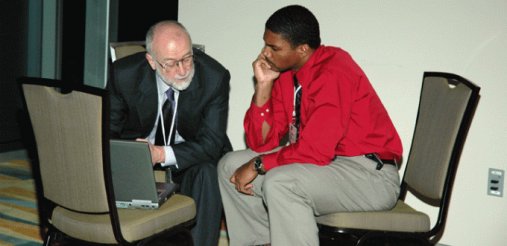
The Brown Clinical Psychology Training Program began in 1975 as a joint effort through Butler Hospital and the Providence VA Medical Center. The training program functions as a consortium and is composed of eight training sites including Butler Hospital, the Department of Veterans Affairs Medical Center, E.P. Bradley Hospital, Memorial Hospital of Rhode Island, The Miriam Hospital, Rhode Island Hospital, Brown's Center for Alcohol & Addiction Studies, and Women & Infants Hospital. Each of these training sites is administratively independent, but each site contributes faculty, financial support, and other resources to the Training Program. Each site has at least two appropriately trained and experienced psychologists who have input into the governance and policies of the training program.
The Consortium is centrally controlled through a Training Committee that is within the Department of Psychiatry & Human Behavior (DPHB). The Training Committee, through the Director of Training, is responsible to the Director of the Division of Clinical Psychology and the Chairman of the DPHB. Representatives from each of the eight institutions are appointed to the Training Committee by the Director of the Training Program. In addition, representatives of the clinical psychology residents and postdoctoral fellows are appointed to the Training Committee.
The Training Committee, under the leadership of Elizabeth McQuaid, PhD, ABPP, Director of the Clinical Psychology Training Consortium, is the central coordinating body of the and policies and goals. Admission principles and procedures, awarding of stipends, assignment of trainees for training and supervision, quality control of the training experience, and evaluation of trainees’ performance are uniform at all sites and administered by the Training Committee.
In addition to the Training Committee and Director of the Clinical Psychology Training, the Clinical Psychology Internship Training Program has two Associate Directors. The Associate Director of Admissions (Greta Francis, PhD, ABPP) coordinates the internship admissions process and the Associate Director of Didactics (Elissa Jelalian, PhD) oversees all of the didactic programming in the Consortium. The Postdoctoral Fellowship Training Program has three Associate Directors for Postdoctoral Training that assist in the coordination of the Postdoctoral Program’s policies and goals. The Associate Director of APA Postdoctoral Training (Barbara Tylenda, PhD, ABPP) has overall responsibility for the APA postdoctoral fellows; the Associate Director of the Investigator-Funded Postdoctoral Training (Geoffrey Tremont, PhD, ABPP-CN) has overall responsibility for the Investigator-Funded postdoctoral fellows; and the Associate Director of NIH-funded Postdoctoral Training (Elizabeth McQuaid, PhD, ABPP) has overall responsibility for postdoctoral training of the fellows in the NIH training programs. Regular meetings are held between the postdoctoral fellows and the appropriate Associate Directors throughout the training year.
The Director of Clinical Psychology Training is responsible for the clinical psychology residents' and postdoctoral fellows’ overall training experience.
- Alcohol Intervention/Treatment Outcome Research
- Substance Abuse Intervention Outcome Research
Source: www.brown.edu
|
Cognitive Behavioral Therapy for Preventing Suicide Attempts: A Guide to Brief Treatments Across Clinical Settings (Clinical Topics in Psychology and Psychiatry) Book (Routledge) |
You might also like:





















 The training and licensing of clinical psychologists ranges from 4 year undergraduate degree plus a 4 to 6 year doctorate program. Most programs in the U.S. are PhD programs that have a strong focus on research and are typically housed in universities. There are...
The training and licensing of clinical psychologists ranges from 4 year undergraduate degree plus a 4 to 6 year doctorate program. Most programs in the U.S. are PhD programs that have a strong focus on research and are typically housed in universities. There are...